Understanding packaging materials is essential to supporting logistics suppliers in market knowledge and cutting costs, according to research by packaging provider RAJA into automotive industry packaging keywords.
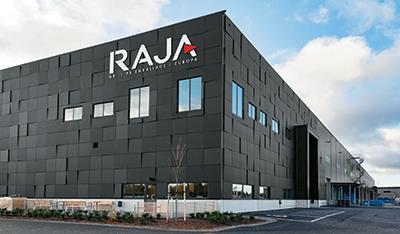
RAJA UK used keyword search volume via SEMrush to discover the trends in the automotive packaging industry. The terms produced more relevant results for those looking for automotive packaging. For products or services providers, using certain words helps appeal to the appropriate audience.
The research found that “automotive packaging” was not the primary search as opposed to the more specific “automotive packaging solutions”.
As the industry faces problems relating to specifications, supply chain issues such as material and driver shortages, as well as rising fuel costs, RAJA conducted keyword research to identify what people are searching for in automotive packaging in the hope that packaging industry players can help fill the gaps.
The results bode well for firms already placed to provide innovative solutions within the automotive industry, putting the focus on solving problems and improving logistics to attract more users.
Globally, information on the “packaging of automotive parts” and “automotive packaging design” is sought after, demonstrating a desire for more innovative packaging designs that are bespoke to the automotive industry. This involved adding an innovation element to the R&D process and emphasising bespoke solutions.
Indicative of how specific customers are looking, keywords yielded no searches for cardboard boxes. However, “corrugated plastic tubing automotive” was identified. Search terms that ranked highly include “car foam”, “car plastic”, and “car wood”, all of which are considered to be less sustainable when it comes to production, although their reusable nature can make them more sustainable in the long run.
With “plastic”, “foam”, “tubing”, and “wood” being critical components in the types of packaging materials searched for by consumers, emphasising these terms targets what insiders are looking for specifically.
The automotive industry supply chain is still recovering from the impact of the coronavirus pandemic and the ineluctable lockdowns in 2020. Shortages of raw materials and components and supply unable to keep up with demand.
In a global shortage, obtaining materials such as steel, resin and foam led to rapidly rising costs for suppliers and a wealth of other logistical challenges. This includes scarcity of labour such as truck drivers, the Suez Canal blockage and increasing shipping costs.
Sustainable packaging
Search results for the industry don’t currently reflect many of the difficulties represented in industry data, but consumers are increasingly concerned about the sustainability of the products they purchase.
A RAJA spokesperson said that automotive as an industry is looking to become more sustainable and reduce its reliance on single-use plastics.
“The major driving factor is sustainability, but other motivating factors have been a need to reduce cost or lead times,” they said.
As new innovative products become available to the industry, such as paper stretch, paper strapping and higher recycled content in plastics, customers are increasingly able to meet their sustainability goals while providing high-quality packaging.
“Logistics needs to keep up with the demands of customers and to be able to offer comprehensive solutions that keep the carbon footprint down.”
RAJA stressed that environmental impact should be a consideration at every stage, whether it’s the material used or construction methods, such as wooden crates being designed with ease of disassembly for reuse or shedding for recyclability in mind.
Supply chain difficulties
Automotive packaging has faced several challenges in recent years, making the process more expensive. The research highlighted ways for providers to cut packaging costs, such as using different packaging, which is more returnable and reduces waste. Also, rigidity was recommended as a way of protecting valuable parts and protection from contamination thanks to the sealed boxes.
“Automotive as an industry needs a wider range of packaging options than most sectors – parts can be small enough to need a 240 x 320mm zip-lock bag or large enough to need custom sized boxes, and the peak periods can fluctuate as well; it’s never a one-size-fits-all solution,” said Aaron Oakes, a business development manager from RAJA UK adds.
The automotive industry supply chain remains in a state of recovery from the impact of the coronavirus pandemic and the ineluctable lockdowns in 2 20. Shortages of raw materials and components and supply unable to keep up with demand.
Obtaining materials such as steel, resin and foam in a global shortage led to rapidly rising costs for suppliers as well as a wealth of other logistical challenges. This includes scarcity of truck drivers, the Suez Canal blockage and increased shipping costs.




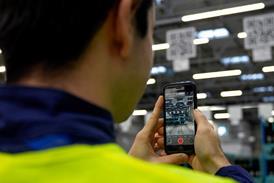















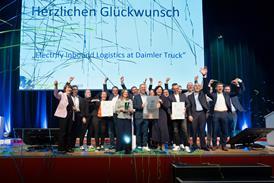










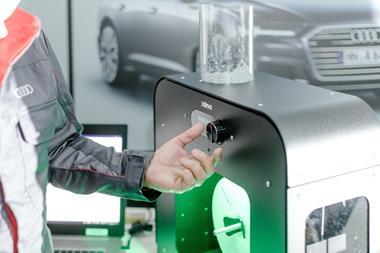


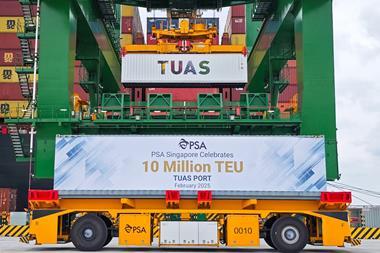




No comments yet